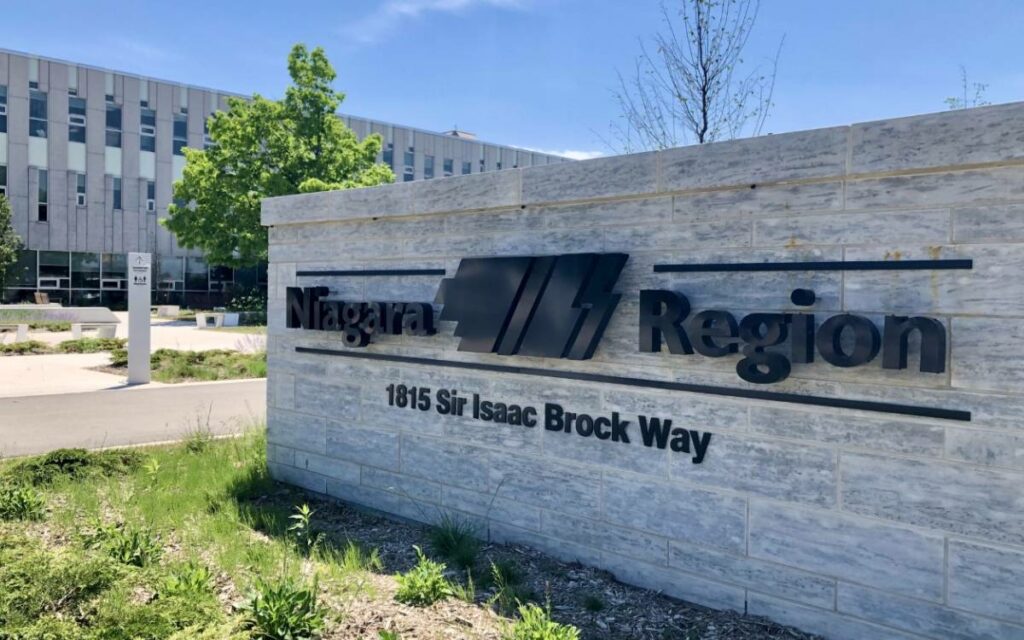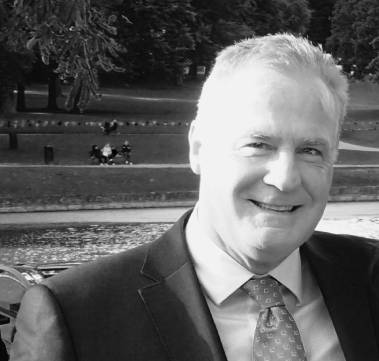
Niagara Region Headquarters, Thorold, ON. Photo credit: The Niagara Independent/Nicholas Tibollo
Niagara’s 2020 consolidated financial statements, independently audited by the financial mavens at Deloitte, were recently approved by the Region’s audit committee. A cursory reading of the report might lead one to believe that the coffers are flush, given a reported $96 million in surpluses.
Should we expect a return to weekly trash pickup, a fleet purchase of $300,000 armoured rescue vehicles for the Niagara Regional Police Service, and other such grandiose expenditures?
Better yet, what about some the tax relief for the citizenry, after several years of increases?
Alas, there will be no spending sprees to address a backlog of infrastructure projects, and certainly no tax cuts. The tax bill for the average property in Niagara, assessed at $278,764, will increase by $29 in 2021, totaling $1,640. The Region’s portion of the typical tax assessment will climb by 1.8 per cent, which is in step with the nominal tax increases (around 2 per cent) of the past few years.
Todd Harrison, Commissioner of Corporate Services and Regional Treasurer, explained the accounting process which dictates how monies are categorized.
“People need to understand that the surplus we recognize for operational purposes is the one that’s based on our budget,” said Harrison. “The financial statements reflect a methodology in which amortization and the principal portion of the Region’s debt repayment are deducted, so the reported number is higher than the actual operating surplus. The true operating surplus that the Region had last year was $41 million, which came from water and wastewater, waste management, and the tax levy.”
Harrison said that in the previous cycle, the Region had $613,000 as a year-end surplus. This year’s $96 million surplus figure includes the extra money the Region received from upper levels of government to offset COVID expenses.
“A lot of that money that was received late in 2020 is going to be expended this year…it’s part of our 2021 budget as it relates to the pandemic expenses,” said Harrison. He added that no one foresaw the calamitous impact of COVID-19. “There was a lot of debate at the Regional Council level about the reserves, which are used to offset unexpected events.”
Bottom line: the money that was identified as surplus this year is going to be spent in 2021. And if it’s not spent in 2021, it will be spent in 2022. It has to be directed to COVID-related expenses, and can’t be used for other purposes, like offsetting tax rates.
Regional chair Jim Bradley offered a fitting analogy: “reserves and surpluses are meant for a rainy day, and we’ve just come through a COVID typhoon.”
Tim Rigby, regional councillor for St. Catharines and chair of the Region’s audit committee, buttressed Harrison’s comments.
“Let’s just understand what it is,” said Rigby. “A big chunk of that money was paid to us by the federal and provincial governments last year for COVID-19 projects, and is carried into our next financial year. In dealing with upper levels of government, you make the request for funding, they provide it, we spend it, and give them a report which proves that we spent it properly.”
Tim Whalen, regional councillor for Thorold and vice chair of the audit committee, echoed Rigby, asserting that “it’s money that has already been allocated, to be spent on issues that are a result of the pandemic.”
Here’s the ‘Taxation for Dummies’ short course, for the uninitiated.
Niagara residents pay a blended property tax rate, a three-way split between the Region, the local sub-municipality, and public school boards. The sub-municipal chunk goes to services and assets as approved by the local Council in its operating budget. The Region portion pays for such big-ticket items as public health, waste management, policing, and regional roads. The education portion is set and administered by the Province of Ontario, and funds public education.
Once all three levels of government have set their individual rates, they are combined into one finalized rate. That rate is then calculated against the assessed value of a home or property to generate a total of taxes owed on the property for the year.
Each year, the Region prepares two budgets, the capital and operating budgets. Within the operating budget, there is a rate budget that includes two types of services: waste management (which includes weekly garbage, recycling and organics collection and processing, and landfill operations) and water and wastewater services (which include the cost of water and wastewater treatment plants, pumping stations, pipes, and other infrastructure.)
The Region’s gross budget is the total cost to deliver programs and services, whereas the net budget accounts for all revenues and subsidies received for the services. This is the portion of the budget that is paid for through regional property taxes.
The levy operating budget is $405.3 million this year, which funds the daily business of Niagara Region, its boards and agencies. The rate operating budget is $166 million, which includes Water and Wastewater Services ($125.4 million) and Waste Management ($40.6 million.)
COVID-19 costs for 2021 are estimated at $19.4 million.
The Region’s operating budget supports a $500.3 million capital program, which includes major projects like the construction of the South Niagara Falls Wastewater Treatment Facility, plus road resurfacing, water main replacements, and other infrastructure developments.
The 2021 Niagara Region budget summary is available here.
On a related note of matters involving “rendering unto Caesar,” the independent research organization Fraser Institute announced that Tax Freedom Day was Monday, May 24. The Institute annually designates the hypothetical date when, if you had to pay all federal, provincial, and municipal taxes up front, you would start keeping money in your own pocket. By their reckoning, in 2021, the average Canadian family will pay just over 39 per cent of its gross annual earnings to income taxes, payroll taxes, health taxes, sales taxes, property taxes, fuel taxes, and carbon taxes.

Don Rickers’ career in education spanned over three decades, and included stints as a teacher, student recruiter, coach, boarding school housemaster, enrollment management director, and headmaster. He has travelled extensively and visited hundreds of schools around the globe, and served for almost ten years on the governing committee of the Association of Boarding Schools based in Washington, DC. Now a member of the Canadian Association of Journalists, his freelance articles have been featured in newspapers, blogs, and educational journals. A former national team lacrosse player, he holds a masters degree from Brock University, and is a member of the board of directors of the South Niagara Rowing Club. He resides in Fonthill.




















